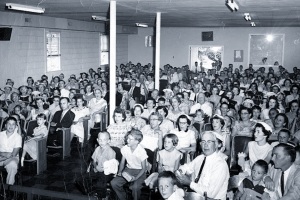Making Orphans: Harvesting Eggs From Abortion
Scientists often believe that if something can be done it should be done. But that's not always true.
The subtitle of Mary Shelley's famous novel "Frankenstein," was "The Modern Prometheus." The reference is to the Greek legend about the tragic consequences of endowing humanity with god-like power. Shelley's Frankenstein is about a scientist operating without regard for moral and ethical constraints.
All of this comes to mind after reading about a proposal coming out of a scientific conference in Madrid. There, researchers from Israel and the Netherlands announced a potential new source for human eggs to be used in in-vitro-fertilization treatments: aborted female fetuses.
Speaking at a meeting of the European Society of Human Reproduction and Embryology, the researchers said that they have "kept ovarian tissue from aborted fetuses alive in the laboratory for several weeks."
According to them, it is "'theoretically possible' that with extra hormone treatments they could produce mature eggs suitable for IVF use." The eggs harvested from the dead could ease what is being called "a worldwide shortage of donated eggs for women who cannot produce their own."
Some ideas are so macabre even bioethicists are taken aback; and this is one of them. Dr. Tom Shakespeare of Newcastle University told the UK Mail that he was "deeply uneasy" about this proposed technology. He's concerned about the "widespread revulsion" and the consequences of having "somebody born who is the child of someone who never lived."
It's telling that he didn't say that he thought that it was revolting but, instead, was concerned about other people finding it revolting. And they should. Why? Because it is revolting. It's also to be expected when science and ethics are kept apart.
Too much of modern science proceeds as follows: things that are thinkable become possible, then they become actual, and, finally, they become expected, applauded as great goods for one and all.
In this ethical space, obvious questions go unasked and loaded assumptions go unaddressed. Take, for example, the idea that there is "a worldwide shortage of donated eggs." Prior to IVF, there was no shortage because it wasn't even possible. Now there's a shortage simply because there's a demand. So if we want it, we deserve it?
And I can't help but think one reason for the shortage is the estimated 160 million "missing women" in Asia alone – women who would be alive today if not for sex-selective abortion. The combination of ultrasound, abortion, and demand for male children has meant fewer women, and therefore, fewer eggs.
There's also no mention of what may be the biggest factor driving the demand for IVF in the first place: postponing marriage and childbirth. The inescapable biological truth is that it's harder to conceive and carry a child to term as a woman gets older. The "worldwide shortage of eggs" is a direct result of our demanding attitudes towards marriage and childbearing.
Rather than acknowledge the constraints nature places on our ideas about freedom, we, like Shelly's Dr. Frankenstein, seek to bend nature to our will, even if it means desecrating the dead. The aborted fetuses in this technology will have been violated twice: first killed and then used to create what Shelly might have called a new "Adam," a person born from a mother who never lived.
It's difficult to imagine a more gruesome example of the commodification of human life. But it's to be expected from the separation of science and morality. It is one of the most-pressing tasks facing the Church to insist on their reunion. Especially since there's no shortage of would-be modern Prometheuses.





























